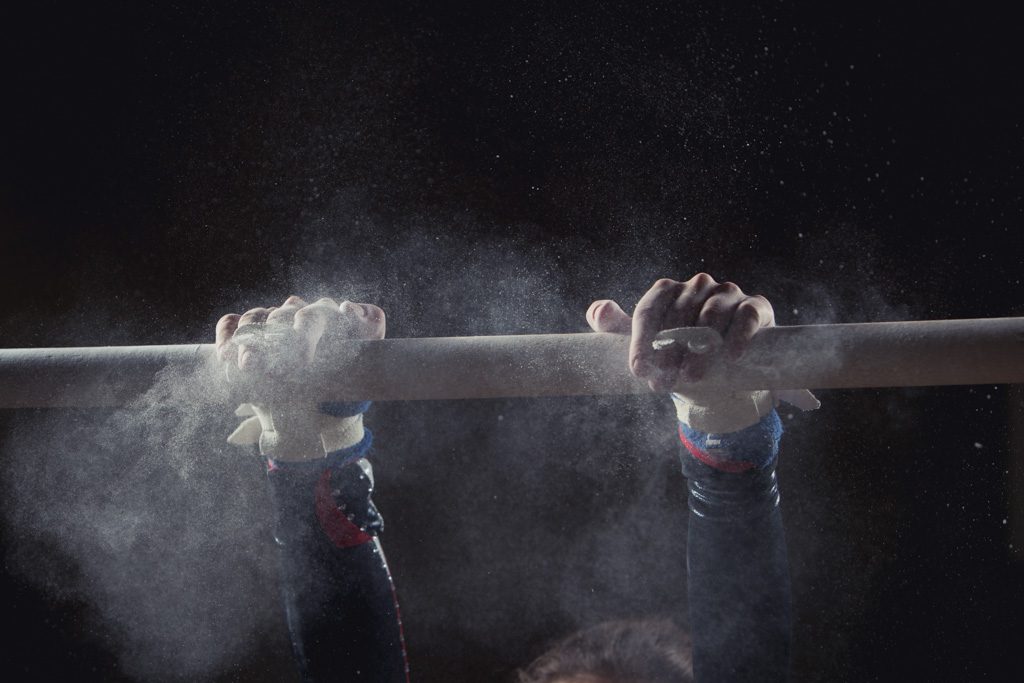I understand and fully support Simone Biles’s decision to withdraw from the Olympics—but I’m not about to demonize sports for causing it.
In case you missed it, Biles—a four-time gold medalist in Rio who is roundly regarded as the greatest gymnast ever—withdrew from the team and all-around competitions at the Tokyo Olympics to focus on mental well-being.
That took a huge amount of courage, and I respect her decision.
But I’d argue with people who are currently saying the pressure placed upon top athletes is unfair.

Don’t be mistaken: Mental health should always be placed above a shiny piece of metal hanging around a neck. Athletes should be allowed to withdraw and retire as they see fit. And it’s good that mental-health issues are being discussed more often. Doing so will save lives and improve quality of life for a host of people.
That said, elite athletics are as much a mental competition as a physical test.
We’ve seen it time and again: Some athletes overcome fear and doubt to do incredible things. Others who might be more physically gifted than their peers never achieve their true potential due to internal struggles with confidence, fear and pressure.
Two examples:
- Michael Jordan’s famous “flu game,” in which he overcame extreme physical issues to score 38 points in Game 5 of the 1997 NBA Finals.
- NHL player Patrik Laine’s candid assertion that his confidence level was “closer to zero” during an extended slump earlier this year.
You can find hundreds of examples on either side of the coin. Biles’s withdrawal is simply the latest and most prominent example of the incredible pressures on athletes.
It follows tennis star Naomi Osaka’s decision to “skip press conferences at Roland Garros to exercise self-care and preservation of my mental health.”
So are sport, its fans and the sporting press placing undue pressure on the world’s best athletes?
I don’t think so—but I know this likely isn’t a popular opinion these days.
The Price of Fame and Adoration
Sporting success—and the many rewards that come with it—have a price, and the cost goes up as the rewards increase.
The greatest athletes of all time are willing to pay that price. Others are not.
I think that’s OK.
Those who want to stand on the top of the podium are going to have to battle their minds and other competitors at the same time, and they’re likely prepared to give more than anyone else. I like that about sports. I enjoy watching people of focus, commitment and sheer effing will, to lift a line from the “John Wick” series.
Few have those qualities. It’s what makes the greatest the greatest.
I admire athletes who train six hours a day, give up time with their families to be the best at a particular sport or travel the world on a hectic, stressful competition schedule. I wouldn’t do those things, so I can’t help but marvel at those who choose to take that path to accomplish their goals. They do what I won’t to earn something I can’t.
But when athletes publicly pursue greatness, I can’t help but place expectations on them—especially when they are well compensated financially, as the world’s best usually are. If our collective expectations are ever too much, any athlete need only bow out gracefully. We should accept that and thank them for inspiring us for so many years. They get to choose how to live and how to be happy.
Sensitive and Sensible
The current criticism of Biles by some people is beyond stupid, and I’m happy she’s being held up as a role model for doing what she needed to do to be healthy.
In the new era of sensitivity, I think we need to praise athletes who are honest and open about their struggles. Biles could have faked a physical injury or used any excuse to save face. Instead, she was open and honest, and that should raise her status even further.
When athletes falter or step back, we should support them, and we should call out the idiots who suggest their failures are “national disgraces,” “unpatriotic” or whatever. We shouldn’t treat them like raw meat to be fed into a gladiatorial arena for our national pride and entertainment.
But we also don’t need to bear responsibility for burdening them with the weight of our expectations. If people want to be the best and compete on the world stage, pressure is part of the deal. Sport is and always will be a what-have-you-done-for-me-lately affair that comes with rich reward and incredible pressure. It’s not for everyone. But that’s always been the case—even if we didn’t talk about it enough.
So I deeply respect Simone Biles. She’s a champion. I hope she finds peace and happiness, and I hope people give her the respect she deserves.
But I’m still reserving admiration for those Olympians who manage the incredible pressure and rise to the occasion. Not because Biles is flawed, but because we’re all flawed and life is challenging. I’m regularly stressed out, and I know you are, too. So I’m inspired and motivated most by those who find ways to accept their fears and accomplish impressive goals in spite of them—at the Olympics or in the real world.
Here’s someone who did exactly that, and I’d put him on a podium without a second thought: Two-Brain Comeback of the Year Award.

